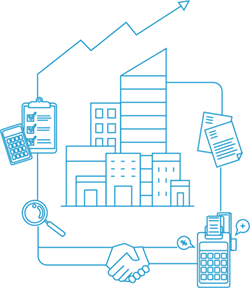In early November, the Western Australian Government announced a series of proposed changes to the Local Government Act, resulting in a number of key changes to financial management and reporting. 
For more information, you can view the proposed changes here.
The changes come off the back of a 2017 review of the Act, and its subsequent recommendations.
Overseen by the Department of Local Government, Sport and Cultural Industries, the potential reforms are currently open for comment from local governments (LGs) and the wider community.
The consultation period ends 25 February 2022.
As one of the key themes, the reforms aim to improve financial management and reporting for all LGs across the state.
Here we discuss 6 changes that fall under financial management and reporting, and how they stand to affect the 137 local governments in WA:
1. TIERED AND TEMPLATED FINANCIAL REPORTING
Currently, all LGs have the same financial reporting requirements. This means that small regional and remote shires are subject to the same complex reporting as large metro areas.
Under the reforms, a tiered approach would ensure financial models cater to the size and complexity of an LG. These models would be supported by templates to clarify exactly what needs to be included in annual financial reports.
Having supported small local governments to meet their financial reporting obligations, we believe this is a good move. It will certainly reduce the time and cost associated with compiling the report, and make them simpler for end users to interpret.
2. NEW QUARTERLY REGISTERS
Traditionally, all financial reporting is completed annually. This has meant that certain expenditure which should be made publicly available earlier, isn’t published until (in some cases) more than 12 months after the fact.
To stem this risk, the proposed amendments include a quarterly register so LGs can report expenditures such as contracts above $100,000, community grants, and so on.
This approach will not only improve the timeliness of reporting, but also transparency between an LG and their community.
3. STRATEGIC AND FINANCIAL PLANNING TEMPLATES
After decades of ambiguity surrounding planning frameworks, LGs will now have access to templates when developing strategic and financial plans.
These templates will clearly outline what an LG needs to include in their plan – ultimately reducing the administrative burden for those who are tasked with preparing it.
Templates will also help to create consistency in areas of planning across the state, and make the plans easier to review and compare.
4. INCREASED TRANSPARENCY FOR RATES PAYERS
“Where does my money go?” is a frequent and fair question that many taxpayers ask. The reforms aim to address this by requiring LGs to provide this information on future rates notices.
The expenditure must link to the LG’s strategic and financial plan to show a genuine link between operating costs and rates.
In addition to improving transparency, this change will also help drive better communication between LGs and their communities. 
5. CHANGE TO THE CALCULATION OF RATIOS
Currently, LGs are required to make financial calculations against 7 ratios which are then publicly displayed as a measure of financial health.
Unfortunately, the way these are calculated now doesn’t always provide an accurate picture of an LG’s financial position.
As part of the reform, the methodology behind these calculations would change to ensure more meaningful outcomes with a clear picture of underlying trends.
6. MORE OBJECTIVITY IN AUDIT COMMITTEES
Under existing law, every LG needs to have an audit committee made up of councillors and independent members.
Often, this results in a high number of councillors and fewer (if any) independent members.
The reforms would see a requirement to ensure a higher proportion of independent members, including having an independent chairperson.
This would allow for more independent oversight of financial management within LGs.
While it’s a good move, it may be difficult for some regional areas to meet the requirements – simply due to trouble finding qualified people to fill those roles.
One solution could be to have a regional group of independents, where several LGs can utilise the same people for their committee.
HOW RSM CAN SUPPORT LOCAL GOVERNMENTS IN THIS CHANGE
When the reforms are made law, local governments in WA will need to adjust their processes to meet the new requirements and ensure ongoing compliance.
RSM’s skilled advisers, who have extensive experience supporting local governments, can assist in bridging this gap.
We can support your local government with:
- preparing financial statements to align with the new format
- compiling information to be recorded on the quarterly register
- developing strategic and financial plans under the new templated approach
- financial modelling for rates
- ratio calculations
- internal audit services
For a confidential discussion on how to transition your local government in light of the reforms, contact your local WA public sector consulting team.


